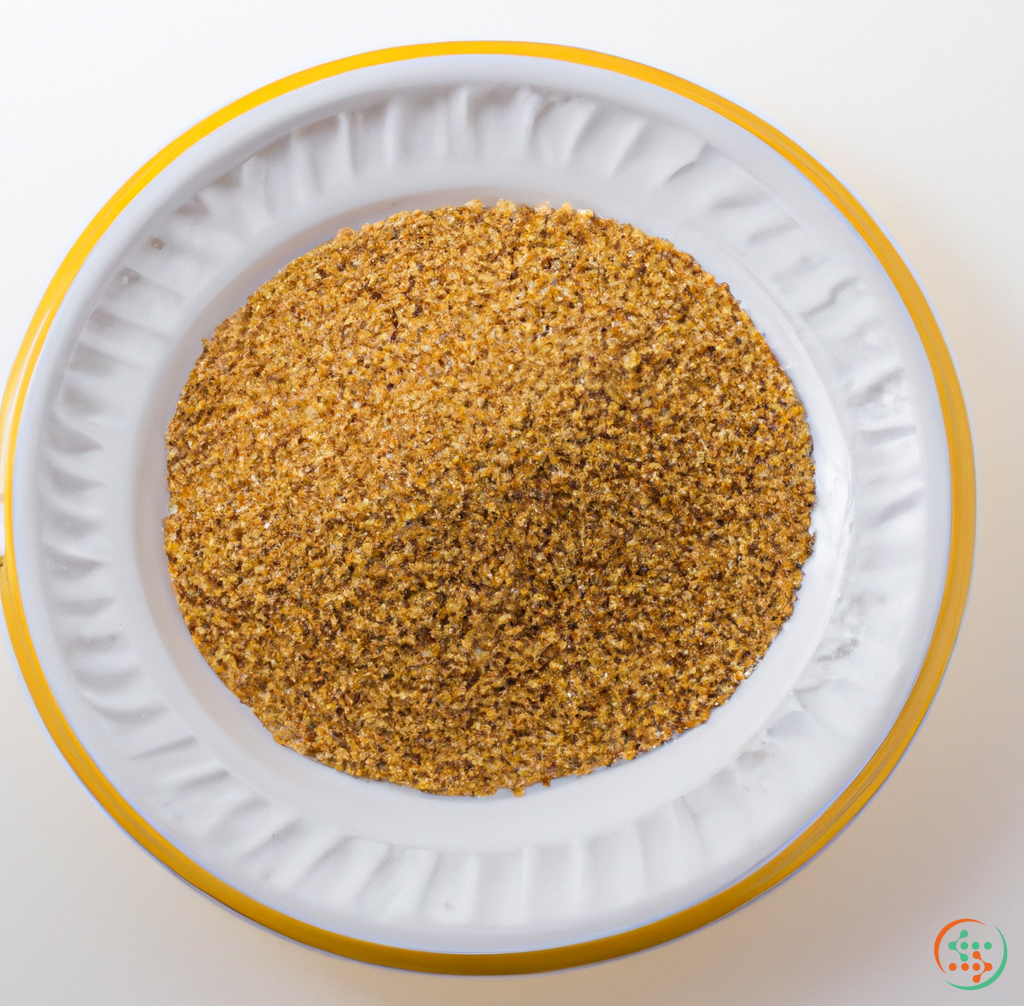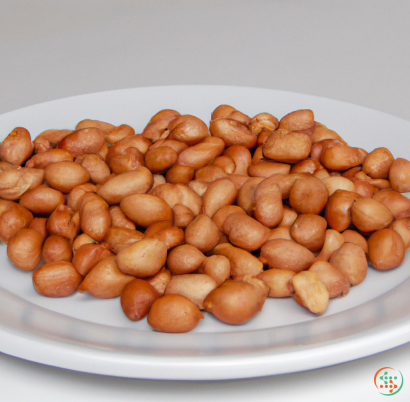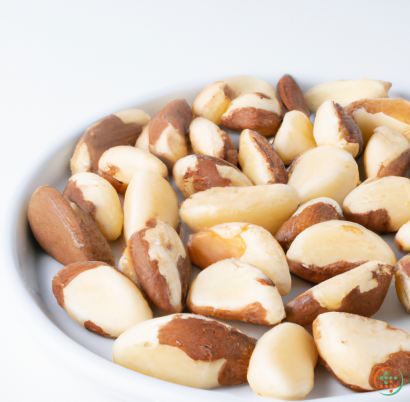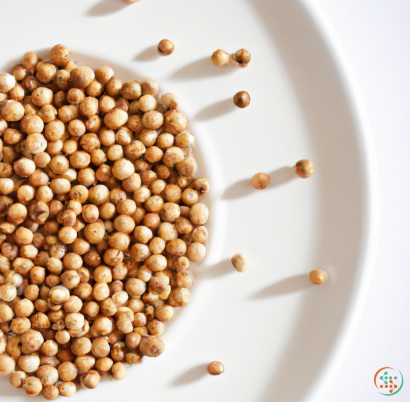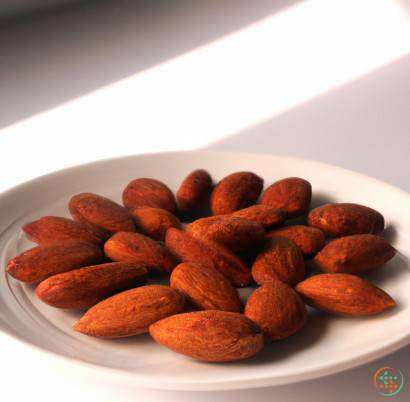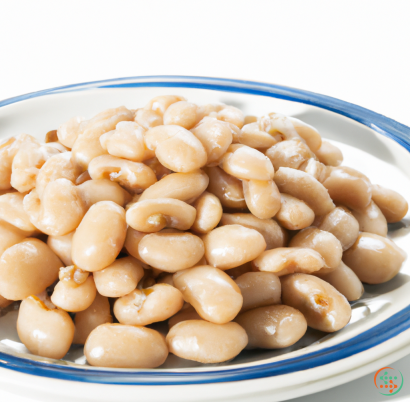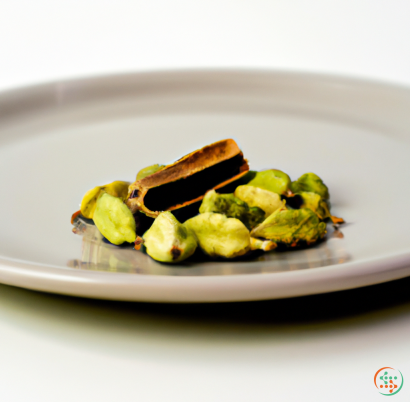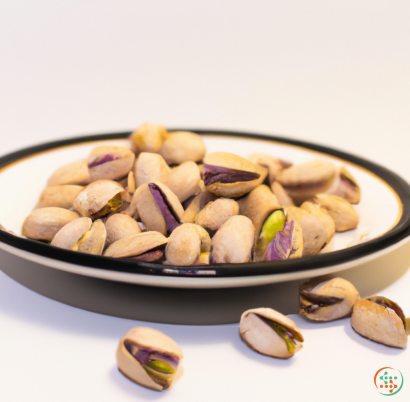Mustard Seed
.
The Mustard Seed – Nature’s Tiny Package of Health, Strength, and Wisdom
If you’ve ever heard the phrase “big things come in small packages,” then the mustard seed certainly fits this description. The mustard seed is one of nature’s most powerful and significant ingredients, providing health, strength, and even wisdom if used properly.
In its whole form, the mustard seed is about 2–4 mm in diameter and is a bright yellow or golden colour. It is actually part of the plant Sinapis alba, a member of the same family as cabbage and cauliflower.
Mustard seeds are a type of ancient spice and have been cultivated and used worldwide for centuries. Commercially, they are harvested at the beginning of summer, when the seeds are at their ripest. They are then dried, ground up, and used in cooking and baking recipes.
Apart from its culinary uses, the mustard seed has far more potent benefits. The mustard seed’s immense power comes from its high content of minerals, vitamins, and essential fatty acids. These helpful ingredients provide a wide variety of health benefits, promoting heart health, eye health, and even helping to improve digestion and reduce cholesterol levels.
Mustard seeds are also extremely versatile. They can be boiled in water, steeped in vinegar, or even toasted and blended into a paste. This paste can be used to make the delicious condiment that most of us know as mustard; when mixed with water and dry mustard powder, a creamy, delicious mustard sauce or dressing can be created. Mustard is not only a great addition to sandwiches or salads, it also offers numerous medicinal benefits.
When applied externally, mustard can act as a pain reliever due to its high content of magnesium, selenium, and beta-carotene. All these nutrients work together to help improve circulation, reduce inflammation, and improve joint health.
Aside from these physical benefits, the mustard seed can also provide wisdom and guidance. The mustard seed has a long history in spirituality and has been used as an allegory in both Christian and Eastern philosophy. Religiously, the mustard seed is considered to be symbolic of faith and is said to represent the “seed of life”.
In Eastern philosophy, Mustard seeds symbolise fertility and hope, providing both comfort and symbolism in moments of sorrow or loss. In recent years, they have even been used as charms and talisman, believed to bring luck and protection from negative energy.
It is easy to see why the mustard seed is so beloved and valued. Nature has blessed us with the presence of this tiny, powerful seed, offering us health, strength, and even wisdom if used correctly. If you are looking for a simple way to improve your wellbeing, a few handfuls of these tiny plants could be just what you need.
The Mustard Seed – From Plant to Plate
Mustard seeds are one of the ancient condiments that have been used by people around the world for centuries. A mustard seed is a small round seed that when crushed or ground releases an intense, pungent flavor, and is widely used as an ingredient in many popular dishes.
In this blog post, we’ll explore how a mustard seed is created and travels to the dinner plate. We’ll take a look at the botanical background of mustard, learn about the various types of mustard seed, and discuss the unique characteristics that make the mustard seed so useful in cooking.
What are Mustard Seeds?
Mustard plants are a member of the Brassicaceae family, which includes cruciferous vegetables such as cabbage and cauliflower. The scientific name for the mustard plant is Brassica juncea, and it’s believed to have originated in the Middle East and Central Asia around 3,000 BCE.
Mustard plants produce yellow, rounded, ribbed pods, which contain the mustard seeds. The mustard seed itself is tiny, ranging in size from 0.06 to 0.12 inches (1.5 to 3.0 mm) in diameter and weighing about 0.013 ounce (0.4 g). The seed’s color also varies from white to light brown and black, depending on the variety.
Types of Mustard Seeds
There are three main types of mustard seeds: yellow, brown, and black. Yellow mustard seeds (also known as white mustard) are the mildest varieties and are widely used to make prepared mustards, such as yellow mustard and Dijon. Brown and black mustard seeds are much spicier, and they are typically used to make dry mustards, such as seed mustard.
Mustard Seed Production
To produce mustard seeds, farmers plant mustard seeds in the late spring and early summer. Once planted, the seeds take roughly three months to mature. The temperature and moisture levels in the soil are key factors in successful mustards seed production. If temperatures get too hot or too cold, or the soil becomes too moist or too dry, the mustard seed crop may fail.
Once the mustard plants are mature, the seedpods are harvested. The seedpods are dehisced, which means the plant’s valves open as the seeds inside mature and fall to the ground. The harvested seedpods are then threshed, which means the seeds are separated from the chaff.
At this point, the mustard seeds are ready to be cleaned, sorted, and graded based on size, shape, and color. Once sorted, the mustard seeds are stored in airtight containers to keep them from getting contaminated by moisture, which can cause them to spoil.
Once stored, the mustard seeds are ready for processing, packaging, and shipping. The finished products can then be used to make prepared mustards, sauces, and other condiments or sold as a whole seed for use in cooking.
Unique Characteristics of Mustard Seeds
Mustard seeds are a unique and versatile ingredient because they have several unique characteristics.
First, they release an intense, pungent flavor when they are crushed or ground. This intense flavor makes them ideal for seasoning savory dishes.
Second, they have a long shelf life. Mustard seeds can stay fresh in a sealed container on the shelf for up to two years, making them a great pantry staple.
Third, they have essential health benefits. Mustard seeds are a good source of dietary fiber, vitamins, minerals, and antioxidants. Studies have also shown that eating mustard can help to lower cholesterol and reduce inflammation in the body.
Finally, mustard seeds are also high in glucosinolates, which are compounds found in cruciferous vegetables that have numerous health benefits. Glucosinolates help to protect against disease by reducing inflammation and preventing cell damage.
Mustard Seed Uses
Mustard seeds are used in cooking all over the world. They are a popular ingredient in many Indian and Asian dishes, such as curries, pickles, and chutneys. They are also commonly used to season salads, sandwiches, and soups, and as an addition to dressings and sauces.
Mustard is also an important condiment in many parts of the world. It is widely used as an ingredient in prepared mustards, such as yellow mustard, Dijon mustard, spicy brown mustard, and seed mustard. It is also used to make honey mustard and mustard vinaigrette dressings.
Mustard seeds can also be used to add flavor and visual appeal to food. Whole mustard seeds can be added to bread dough, rice dishes, roasted vegetables, and even cocktails. In addition, they can also be pan-fried with oil and spices to create a flavorful topping for dishes.
Conclusion
Mustard seed is an incredibly versatile and flavorful ingredient that can be used in a variety of dishes. It has a long shelf life and is packed with essential vitamins and minerals, making it a healthy addition to any diet. From its cultivation in the field to its use in prepared mustards and cooking, the mustard seed has been a popular condiment around the world for centuries.
| Vitamin A | 0.002 mg | |
| Beta-Carotene | 0.018 mg | |
| Vitamin E | 0.00507 grams | |
| Vitamin K | 0.0054 mg | |
| Vitamin C | 0.0071 grams | |
| Vitamin B1 | 0.81 mg | |
| Vitamin B2 | 0.26 mg | |
| Vitamin B3 | 0.00473 grams | |
| Vitamin B4 | 0.1227 grams | |
| Vitamin B5 | 0.81 mg | |
| Vitamin B6 | 0.4 mg | |
| Vitamin B9 | 0.162 mg |
| Calcium | 0.266 grams |
Daily Value 1.3 g
|
| Iron | 0.00921 grams |
Daily Value 0.018 g
|
| Magnesium | 0.37 grams |
Daily Value 0.4 g
|
| Phosphorus | 0.828 grams |
Daily Value 1.25 g
|
| Potassium | 0.738 grams |
Daily Value 4.7 g
|
| Sodium | 0.013 grams |
Daily Value 2.3 g
|
| Zinc | 0.00608 grams |
Daily Value 0.011 g
|
| Copper | 0.65 mg |
Daily Value 0.9 mg
|
| Manganese | 0.00245 grams |
Daily Value 0.0023 g
|
| Selenium | 0.2081 mg |
Daily Value 0.055 mg
|
| Tryptophan | 0.256 grams | |
| Threonine | 0.838 grams | |
| Isoleucine | 1.183 grams | |
| Leucine | 2.08 grams | |
| Lysine | 1.844 grams | |
| Methionine | 0.483 grams | |
| Cystine | 0.68 grams | |
| Phenylalanine | 1.173 grams | |
| Tyrosine | 0.809 grams | |
| Valine | 1.509 grams | |
| Arginine | 1.933 grams | |
| Histidine | 0.878 grams | |
| Alanine | 1.173 grams | |
| Aspartic Acid | 2.435 grams | |
| Glutamic Acid | 5.265 grams | |
| Glycine | 1.587 grams | |
| Proline | 2.81 grams | |
| Serine | 0.759 grams |
| Galactose | 0.2 grams |
|
| Glucose | 2.88 grams |
|
| Fructose | 0.02 grams |
|
| Sucrose | 3.69 grams |
|
| Total Sugars | 6.8 grams |
per 100g
|
| Palmitic acid (16:0) | 0.98 grams |
|
| Stearic acid (18:0) | 0.46 grams |
|
| Arachidic acid (20:0) | 0.28 grams |
|
| Behenic acid (22:0) | 0.18 grams |
|
| Lignoceric acid (24:0) | 0.11 grams |
|
| Total Saturated fatty acids: | 2.01 g | |
| Nervonic acid (24:1) | 0.64 grams |
|
| Erucic acid (22:1) | 9.36 grams |
|
| Oleic acid (18:1) | 8.46 grams |
|
| Palmitoleic acid (16:1) | 0.06 grams |
|
| Gadoleic acid (20:1) | 3.99 grams |
|
| Total Monounsaturated fatty acids: | 22.51 g | |
| Omega-6 Eicosadienoic acid (20:2) | 0.25 grams |
|
| Linolenic acid (18:3) | 3.79 grams |
|
| Linoleic acid (18:2) | 5.92 grams |
|
| Total Polyunsaturated fatty acids: | 9.96 g | |
| Phytosterols | 0.12 grams |
|
| Total Sterols: | 0.12 g | |
